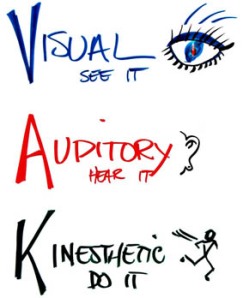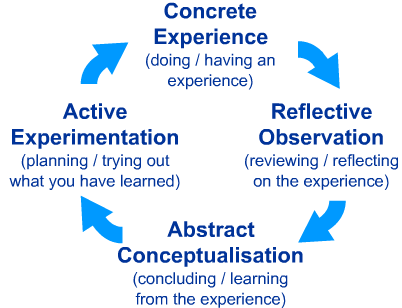Index of Learning Styles Questionnaire
Index of Learning Styles Questionnaire - Richard M. Felder & Barbara A. Soloman, North Carolina State University
Four Learning Styles
Though there are many names and descriptions for different learning styles, the most practical method for identify each style is by its preferred perceptual sense. Thus their are four styles. Click on the name of the style for a link showing the characteristics of that style.
VISUAL: Visual learners prefer seeing information, prefer symbols, charts, diagrams, pictures (including motion), and colors. A person with this style will underline, highlight, draw symbols, and often doodle. This style is easily distracted by images and may “tune out” lectures.
AUDITORY: Auditory learners prefer lectures and, if not shy, are eager to discuss any topic. A person with this style will become so “caught up” in a lecture that no notes are taken, thus a tape recorder can be helpful. This style likes group work and may read/study out loud.
KINESTHETIC: Kinesthetic learners prefer to learn by doing most often using trial and error (they read the instructions as a last resort). A person with this style prefers lab work, field activities, and objects to manipulate. This style will day-dream instead of listening to lectures, taking notes, or reading. This style likes to get involved and get things done. This is the least common teaching style.
ANALYTIC Analytic learners read, think about it, reread, organize, think about it, write, think about it, rewrite, think about it, reorganize, and uses many reference materials. A person with this style likes clearly stated goals, lists, patterns, check-offs, practice sets, and homework. This style prefers the detail often letting someone else worry about the “big picture.
Explore Your Learning Styles
It helps in college to know how you learn - in what style. You may want to take a few of the learning style assessments on Joe Landsberger's Study Guides and Strategies website.
-
Exploring your own learning styleLinks to 6 learning styles assessments.
The VAK Model

Kolb's Learning Style
